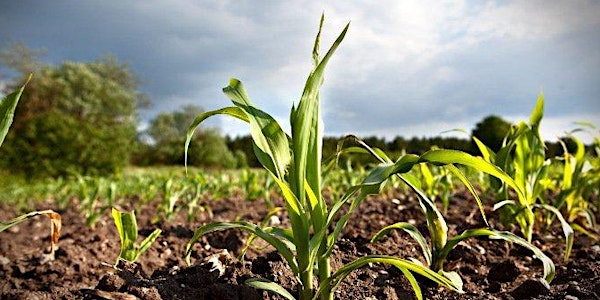
Translational Agriculture: Opportunities, Technologies and Products
Date and time
Location
Royal Palm Salon 3-4, Town and Country Hotel
International Plant & Animal Genome XXV San Diego, CA 92108Description

This annual workshop by KeyGene on Translational Agriculture is focused on the impact of innovative technologies and their integration into the product development process by the industry. Invited speakers from multiple industries in food, agriculture and forestry will showcase how their companies view technological advances and discuss the overall impact on the industry and consumers..

Fayaz Khazi, Chief Executive Officer, KeyGene USA
Translational Agriculture: Promises and Practice
Abstract: Creation of knowledge and effective translation of technologies to enhance the food and agricultural value chain is critical to addressing the challenge of food security and sustainability. The presentation serves to stimulate the dialog at the workshop focused on recent technological advances in agriculture, and discuss how innovations are integrated by various industries to provide value-added products for the mankind.
Vonnie Estes, Group Leader, Agricultural and Industrial Biotechnology, Caribou Biosciences Inc.
Gene Editing - Pathway to Commercialization
Abstract: Gene editing will lead to a new wave of products and profits, delivering value to growers, food companies and consumers. Less expensive, faster and easier plant breeding, new crops with new uses, increased crop yields with less environmental impact are among the many potential benefits. The science of designing gene edited crops is the first step. Getting the products onto farms and into the food chain is the next. The industry will need to introduce gene editing to the domestic and global marketplace in a positive manner. This presentation will explore the path to commercialization including developing appropriate regulatory frameworks, working in a global context, and building public acceptance and trust..
Gabe Gusmini, Research and Development Director, PepsiCo Inc.
Crop Improvement at PepsiCo Translates "Plant Potential" into Impact on Food Value-Chains and Consumer
Abstract: The desire to innovate in raw materials from agriculture for food production is nowadays achievable as part of overall improvement of the whole value chain from upstream genetics and breeding to the end-use by consumenrs and through all the steps in between. This framework for innovation given by the complexity of the food value chain has direct implication on how translational sciences in agriculture provide breakthrough opportunities for impact of innovating crops on the whole value chain, upstream and downstream of the farm gate. The ability to align in time and scale the appropriate discovery and development technology platforms has become a key enabler of such holistic innovation.
Alexandre Missiaggia, Biotechnology Director, Fibria S.A., Jacarei SP, Brazil
Innovative and Sustainable Forest Technology
Abstract: Brazil is one of the world's largest producers of eucalyptus planted forests and in this context, Fibria has a prominent position. Founded in 2009, Fibria is the global largest producer of eucalyptus pulp, with an annual production capacity of 5.3 million tons. Technological development is one of the factors that contribute to Fibria's leadership in the eucalyptus pulp market, guaranteeing high productivity and superior quality of pulp produced. To achieve this demand, Fibria has a Technology Center (CT) that seeks operational excellence, customer satisfaction and anticipation of market demands, from a perspective of innovation and sustainability. Technological research and development has made it possible to improve our productivity while reducing the impact of our operations on the environment. In the forestry area, for instance, an intense research program and the adoption of modern forestry practices have significantly increased our competitiveness. The genetic improvement of eucalyptus trees together with biotechnology, have allowed Fibria cultivate superior trees, resulting in higher productivity. Thus, Fibria had achieved better efficiency in clonal seedling production as a result of pioneering in vegetative propagation procedures. Each year, several research projects are conducted to improve their processes and results, always in tune with environmental conservation.
John Reich, Scientific Program Director, Foundation for Food and Agriculture Research, Washington, DC
How the Foundation for Food and Agriculture Research and Partners Are Working to Nourish a Growing World
Abstract: This presentation will highlight FFAR’s efforts and approach to advancing scientific technologies and food and agriculture systems in order to propel the field forward and meet rising global food demands. Dr. Reich will provide an update on current and future efforts at the Foundation for Food and Agriculture Research and the ways in which the Foundation, together with its partners, is working to identify and fund areas of research that are ripe with scientific opportunity.

Organized by
KeyGene is the go-to AgBiotech company for higher crop yield & quality. With our intellectual capital, solution driven approach and collaborative spirit, we work for the future of global agriculture with partners in the AgriFood sector. Using our proprietary technologies and non-GM approaches, we support customers with the development of new and improved crops. Our goal is to help organizations with their toughest R&D challenges, combining our cutting edge breeding technologies, bioinformatics & data science expertise and plant-based trait platforms. At KeyGene, we work in an international environment with more than 140 professionals from all over the world. Our company is based in Wageningen, Netherlands and Rockville, MD, USA.